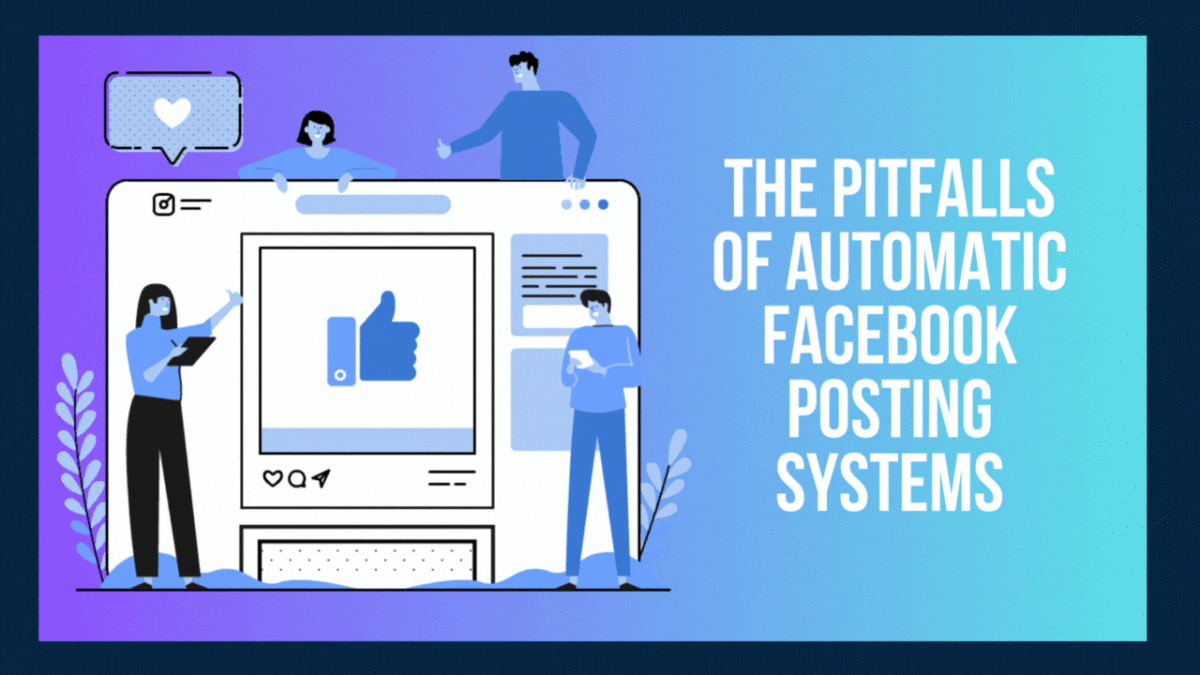The Pitfalls of Automatic Facebook Posting Systems
In today’s digital age, social media has become an integral part of our lives, and Facebook remains one of the most popular platforms for businesses and individuals alike. With the rise of automation tools, it may seem tempting to use third-party posting platforms to streamline your social media strategy. However, in this blog post, we will explore why relying on automatic Facebook posting systems is not a good idea. We’ll delve into the negative impact they can have on your reach, how Facebook favors its own platform, and why it’s essential to plan your social media campaigns directly on Facebook.
Decreased Reach with Facebook: One of the most significant drawbacks of using automatic Facebook posting systems is the potential decrease in reach. Research shows that auto-posted content can experience a significant decline in likes and comments compared to manually posted content. A case study conducted by Warrior Forum demonstrated that auto-posted content experienced a 70% decrease in likes and comments compared to manually posted content [source: Warrior Forum].
Facebook Favors Native Content: Facebook’s algorithm is designed to prioritize content posted directly on their platform. When you automate your Facebook posts using third-party tools, you risk lower visibility and engagement. Facebook encourages users to create and engage with native content. This means that posts scheduled through third-party systems are less likely to gain the same level of visibility and interaction as those posted natively on Facebook. Sprout Social emphasizes the importance of maintaining a genuine connection with your followers and argues that the potential time saved by automation is not worth risking the loyalty of your audience [source: Sprout Social].
Risk to Brand Reputation: Another crucial aspect to consider is the risk of damaging your brand’s reputation. Automated posts often lack the personal touch and authenticity that users appreciate. When users feel bombarded by generic automated content, it can lead to disengagement and a negative perception of your brand. Authenticity plays a vital role in building trust and fostering relationships with your audience. By automating your Facebook posts, you risk alienating your followers and damaging your brand’s reputation.
Best Practices for Facebook Automation: While relying solely on automatic Facebook posting systems may not be advisable, there are still ways to leverage automation effectively. Instead of automating the entire process, consider using automation tools for specific tasks such as scheduling posts or analyzing performance metrics. Hootsuite suggests that automation should only handle the tedious maintenance of your Facebook page, while the creation of engaging content should remain a human-driven endeavor [source: Hootsuite].
In conclusion, using automatic Facebook posting systems may seem appealing initially, but the drawbacks far outweigh the benefits. The decreased reach, preference for native content, and potential damage to your brand’s reputation make it clear that automation should be used sparingly and strategically. To truly maximize the impact of your Facebook presence, it is crucial to plan and execute your social media campaigns directly on the platform. By doing so, you can foster authentic connections with your audience, increase engagement, and ultimately achieve better results for your brand.
Remember, Facebook’s algorithm is designed to prioritize direct engagement and native content, so when it comes to Facebook marketing, there’s no substitute for a hands-on approach.

